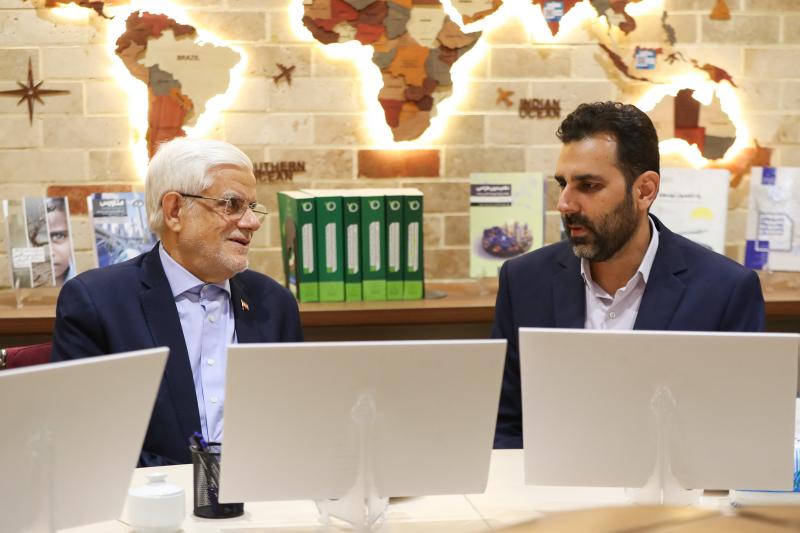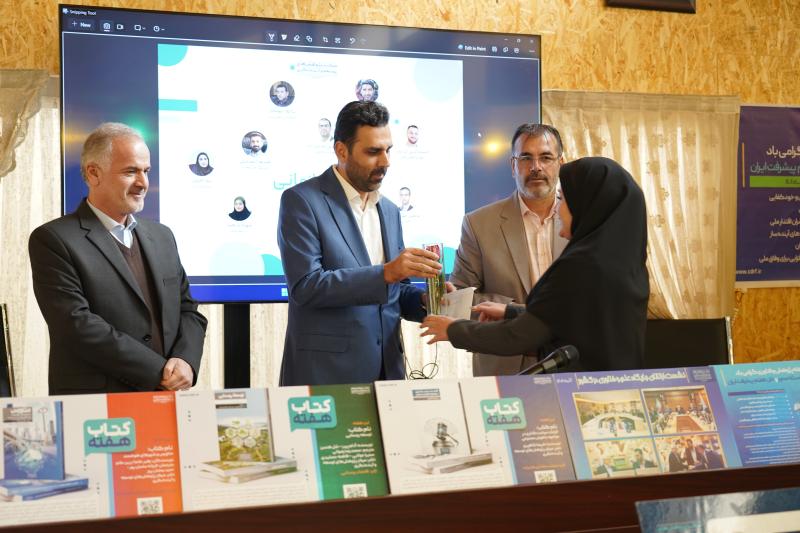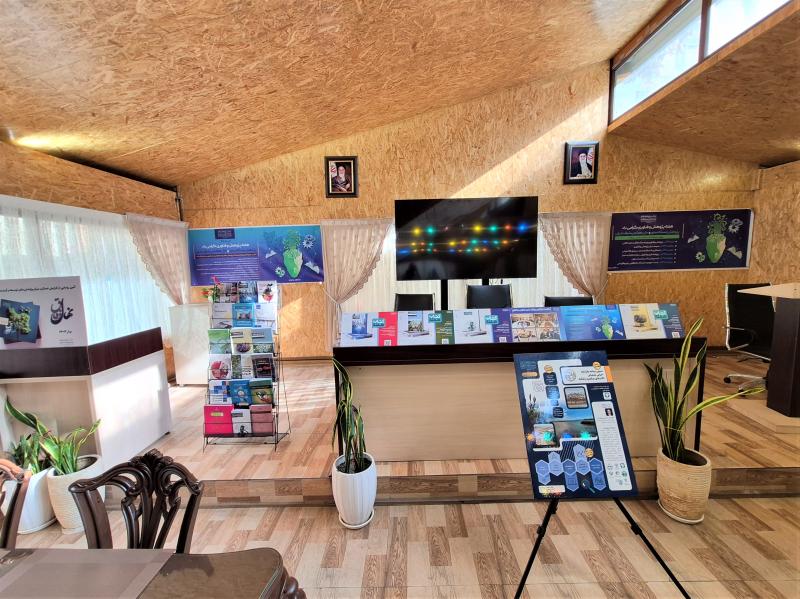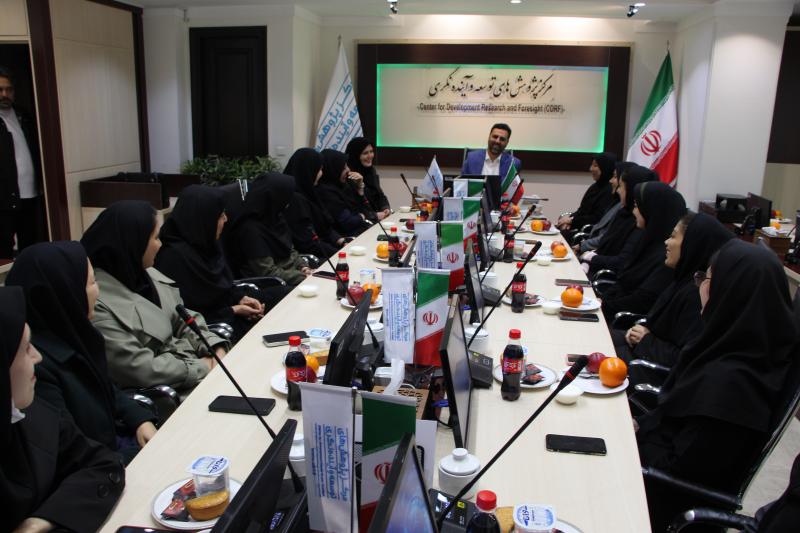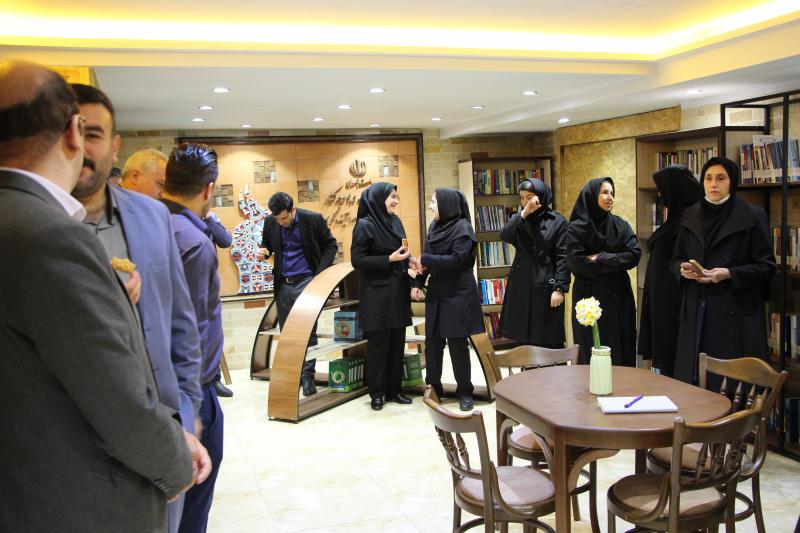
-
بررسی آییننامهها و دستورالعملهای برنامه هفتم پیشرفت
-
بررسی عوامل موثر بر افزایش تصادفات و تلفات جادهای و سوانح رانندگی و دادهکاوی تلفات انسانی
-
سازماندهی و بازآرایی فضایی آموزش عالی کشور
-
به روز رسانی سند ملی آمایش سرزمین
-
انجام مطالعات مناطق آزاد به عنوان نواحی پیشران اقتصادی کشور
-
اصلاح ساختار بودجه و پیاده سازی نظام یکپارچه مدیریت اطلاعات مالی دولت (IFMIS)
کلید واژه : Economic growth
تعداد اخبار : 49
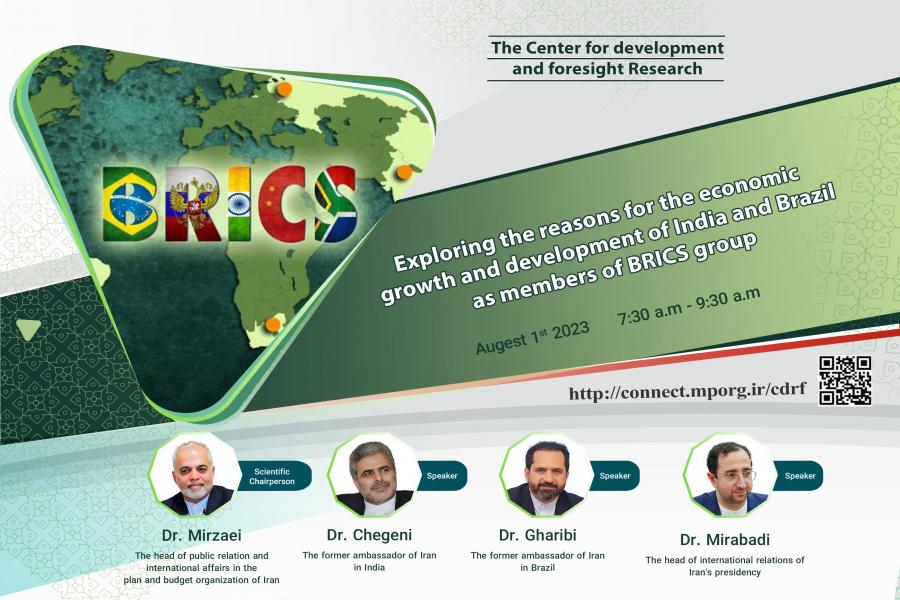
The private sector is the driving force of the BRICS countries’ economic development
The specialized conference of “Exploring the reasons for the success of the development plans of the BRICS countries; with a focus on Brazil and India” was held. It was stated that the private sector is considered as the driving force of economic development in Brazil and India. Also, it was mentioned that utilizing the economic development experience of Brazil and India would be a pivotal factor for the development of Iran’s economy.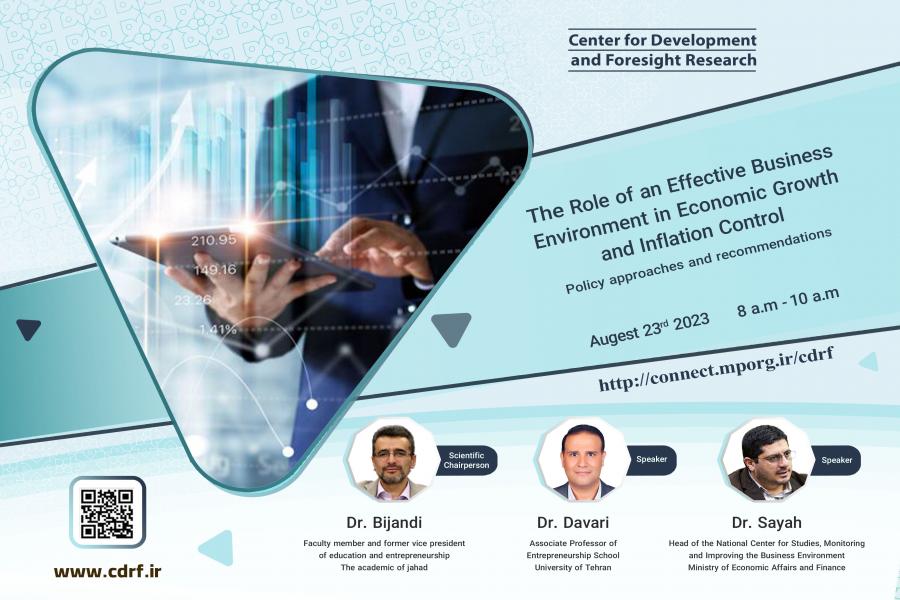
The Role of an Effective Business Environment in Economic Growth and Inflation Control: Approaches and Policy Recommendations
The specialized conference titled “The Role of an Effective Business Environment in Economic Growth and Inflation Control: Approaches and Policy Recommendations” was recently held. The conference was attended by several notable figures, including Dr. Mohammad Sadegh Bijandi, a former member of the academic board and deputy of education and entrepreneurship of the Academic Center for Education, Culture, and Research, who served as the scientific director. Other attendees included Dr. Ali Davari, an associate professor of entrepreneurship at the University of Tehran, and Dr. Amir Sayyah, the head of the National Center for Business Environment Studies, Monitoring, and Improvement of the Ministry of Economic Affairs and Finance, who both served as scientific speakers. The conference aimed to discuss approaches and policy recommendations for creating an effective business environment to promote economic growth and control inflation..jpg)
Mass housing is the public demand from the government.
The scientific-specialized meeting entitled "Strategies for addressing the Housing Supply Crisis" was held with the presence of Mr. Rouhollah Akbari, Special Assistant to the Minister and Secretary of the Committee of Housing of the Ministry of Roads and Urban Development, as the scientific director, Dr. Mohammad Hossein Sharifzadegan, Professor at Shahid Beheshti University and former Minister of Welfare and Social Security, and Dr. Abolfazl Norouzi, Advisor to the Minister and Director General of the Housing Economy Office of the Ministry of Roads and Urban Development, as speakers.
Iran’s Golden Opportunity: Exploring New Commercial Markets in Africa
In the conference of “The Role of International Relations in Controlling Inflation and Production Growth”, it is stated that the main economic goals at the Ministry of Foreign Affairs are fostering currency inflow and boosting employment growth. The embassies have a special mission to support and market the products of 640 domestic knowledge-based companies. Special attention is given to Iran's business opportunities with neighboring countries, Latin America, Southeast Asia, and especially Africa as a priority of the Ministry of Foreign Affairs in the thirteenth government. There is a high demand for Iran's medical and pharmaceutical products in Latin America..jpg)
Agricultural Sector Achieves Significant Growth, but Challenges Remain
The scientific conference titled "The Role of Balancing Production and Consumption of Agricultural Products in Controlling Inflation" underscored the significance of food security and self-sufficiency. It emphasized the urgency to augment investment in the agricultural sector and the imperative to establish a comprehensive production chain for agricultural products..jpg)
Public-Private Partnerships in Land Development: Key Figures Discuss Pressing Issues
In the specialized conference titled "The Model of Public-Private Partnership in Land Development", it is stated that Public-Private Partnerships (PPPs) are essential for meeting the world's infrastructure needs, but face challenges such as financing, maintenance, and planning. Governments play a crucial role in PPPs by fostering a collaborative environment, building capacity, and providing transparent policy-making and necessary financial resources. In Iran, PPPs are still in their early stages, and the government needs to address challenges such as lack of interest from executive agencies and absence of a comprehensive approach.
China's Technological Leapfrogging and Economic Catch-up
In his book, "China's Technological Leapfrogging & Economic Catch-Up- A Schumpeterian Perspective", Professor Keun Lee examines China's economic growth from a Schumpeterian perspective. He argues that China's success in catching up to the developed economies has been due in part to its ability to leapfrog over older technologies and adopt new technologies more quickly.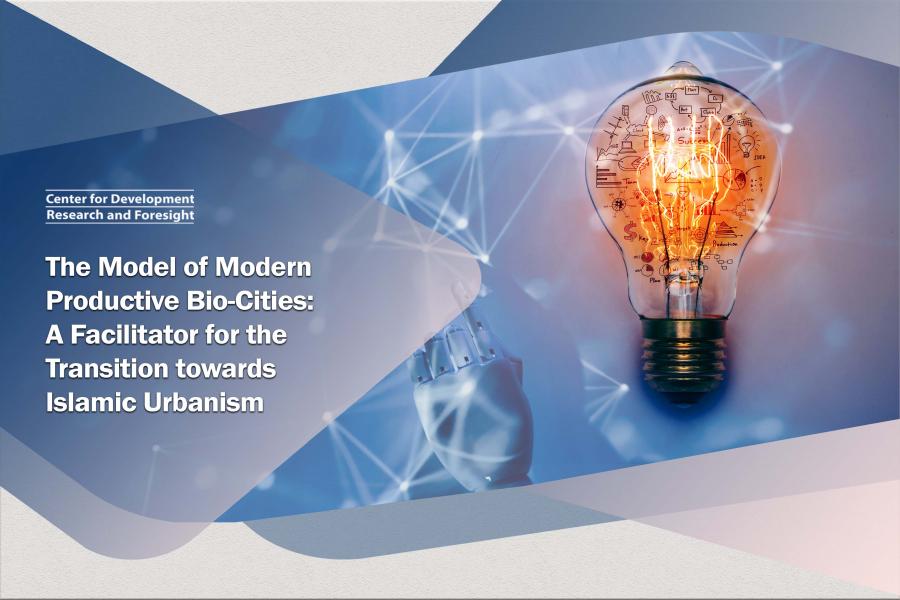
The Model of Modern Productive Bio-Cities: A Facilitator for the Transition towards Islamic Urbanism
The physical infrastructure is recognized as a crucial component of national development. The generative bio-city concept offers a synergistic approach to addressing housing, employment, population, and lifestyle challenges within a socio-cultural framework. This model aims to address pressing issues such as land scarcity and ownership, providing affordable housing, achieving regional balance in land use, and preserving intimate and harmonious spaces within homes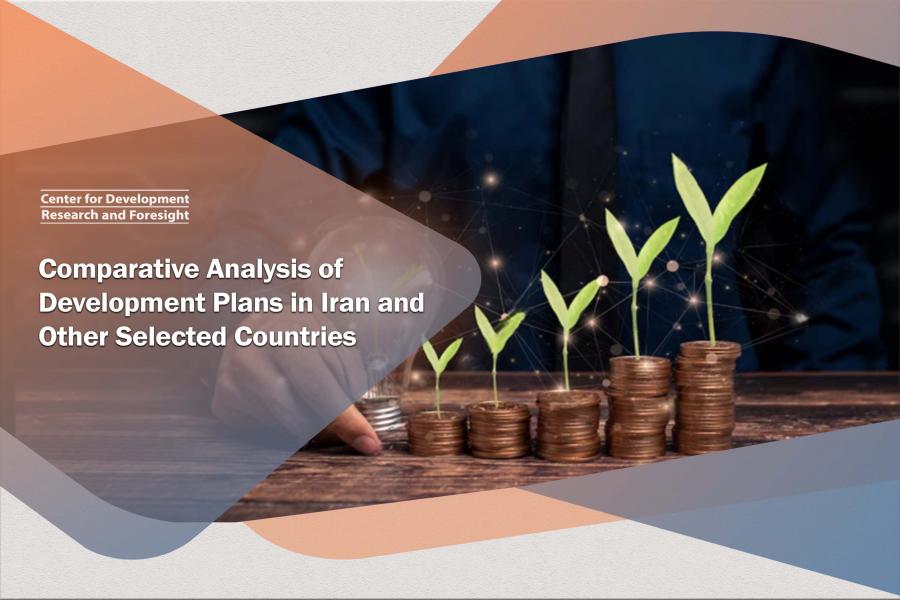
Comparative Analysis of Development Plans in Iran and Other Countries
The concept of development has been greatly influenced by the need for reconstruction and prosperity in countries involved in World War II, as well as the modernization and progress of other countries. However, development is not just about economic growth. It also includes improving income distribution, reducing poverty, expanding production capacities, and providing education, healthcare, and communication services. In essence, development aims to improve the overall quality of life and covers various aspects.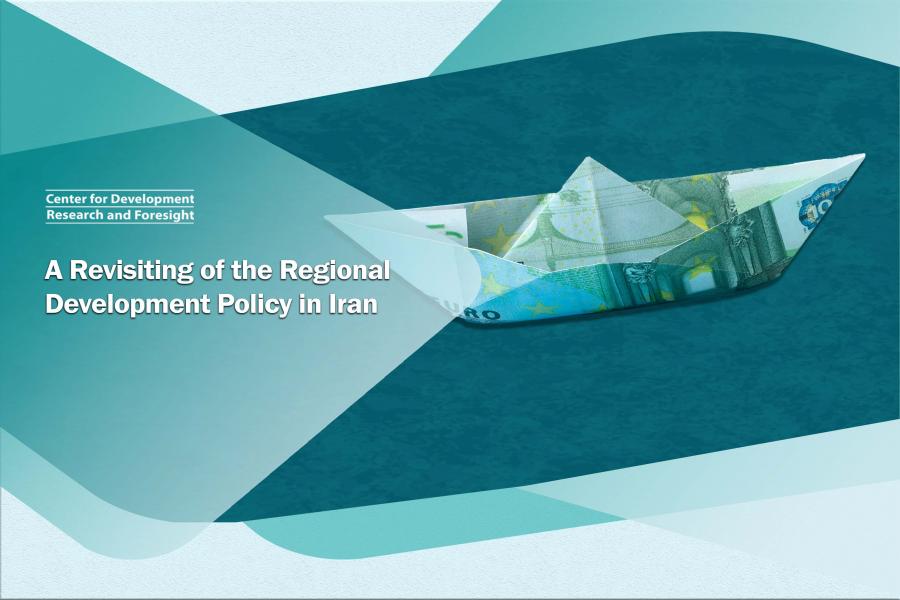
A Revisiting of the Regional Development Policy in Iran
This report elucidates the paradigm shifts pertaining to regional development policies in Iran. These policies have been predicated on two diametrically opposed economic growth strategies: the growth pole strategy, which centralizes investments in central regions, and distribution and redistribution policies, which are fundamentally anchored in principles of social justice.
Promoting Smart Growth: A Strategic Approach to Nurturing Innovation and Entrepreneurship in Iran
Economic growth is a fundamental driver of national prosperity, leading to improvements in per capita income, living standards, and national strength. Iran's development plans, such as the twenty-year vision and the sixth development plan, underscore the importance of achieving high and sustainable economic growth. To realize this goal, it is essential to carefully evaluate the factors influencing economic growth and formulate appropriate policies to address them.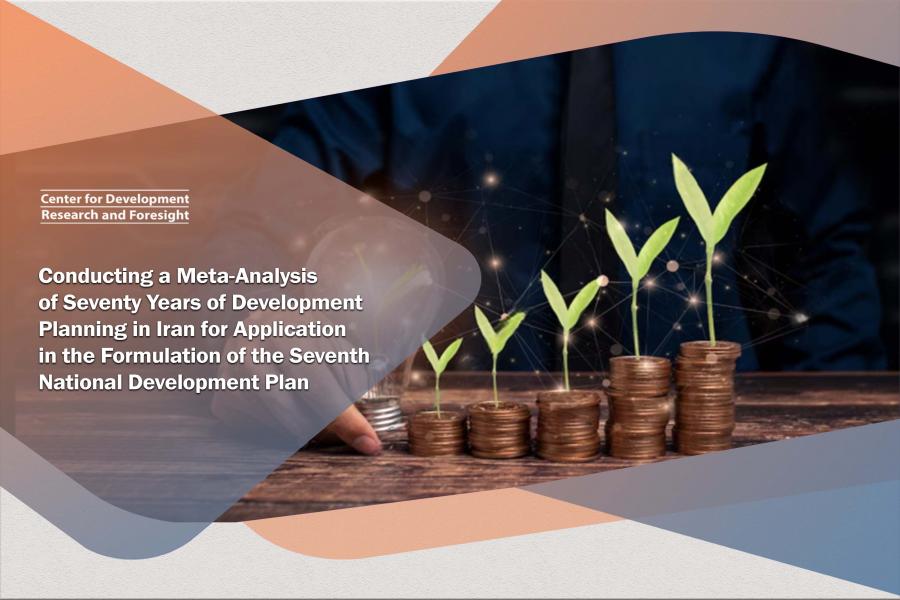
Conducting a Meta-Analysis of Seventy Years of Development Planning in Iran for Application in the Formulation of the Seventh National Development Plan
The development plan in Iran has been shaped by the evolution of the plan itself, following an established planning procedure. A crucial factor for successful planning is the establishment of a shared understanding and consensus on regulations, which serve as a blueprint for the content and structure of the plan among policymakers and planners. Given the importance of this issue, and recognizing that the formulation of regulations will be a pivotal step in advancing the seventh development plan, this study aims to delineate and clarify the regulatory elements of this plan.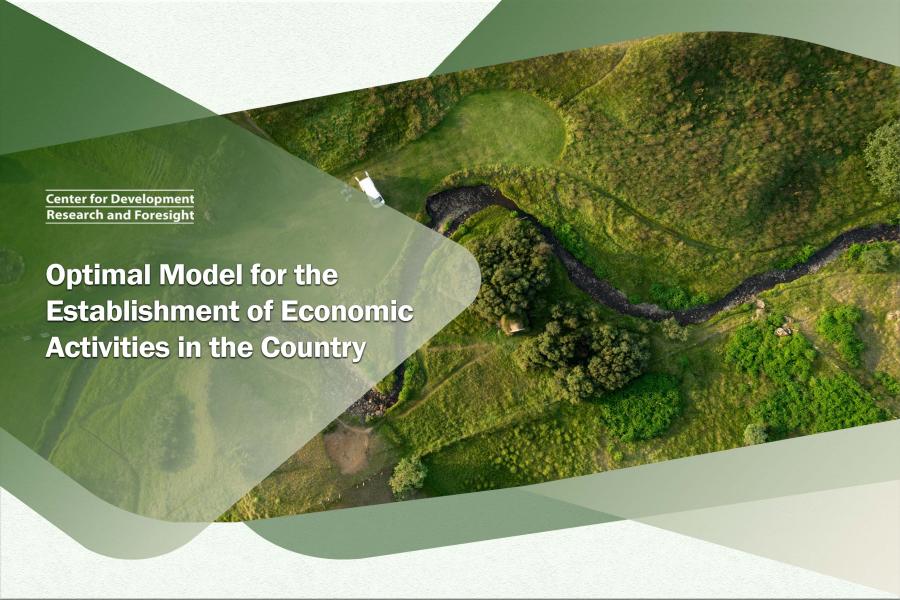
Optimal Model for the Establishment of Economic Activities in the Country
The various dimensions of economic, social, cultural, and environmental factors are essential for achieving sustainable development. Regional imbalances, inequalities, and significant challenges in the development process can arise from focusing only on economic growth in specific regions within a country. Hence, the distribution of economic activities across a territory should consider not only efficiency and economic advantage in different regions, but also other considerations and fundamental principles of spatial development. This study has developed a conceptual framework for determining the distribution of economic activities across a territory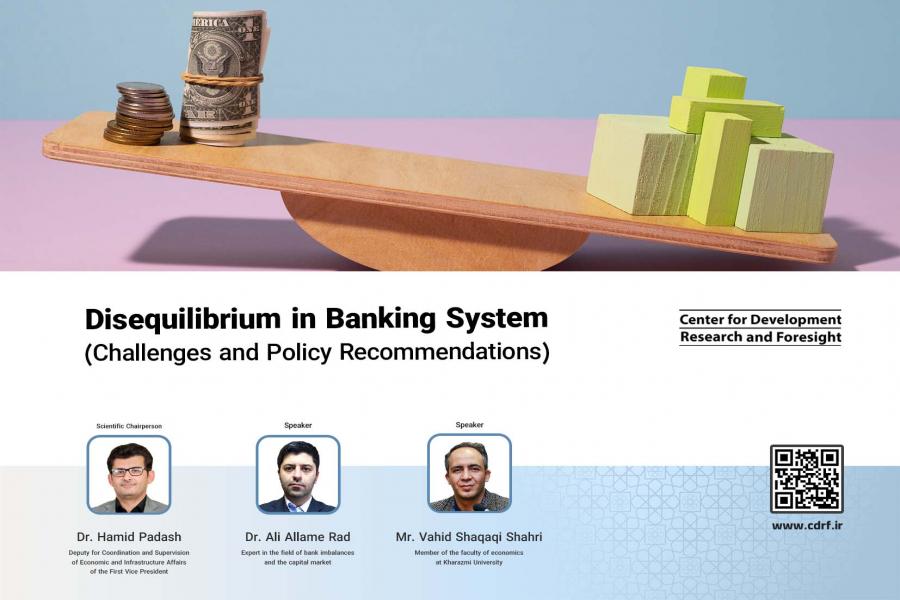
Disequilibrium in Banking System: Challenges and Policy Recommendations
The banking sector's disequilibrium has emerged as a pervasive and enduring challenge within the nation's macroeconomic framework. A series of strategic missteps have plagued the banking sector over the preceding four decades, including: the absence of unified Central Bank oversight from the late 1960s until 1994, despite formal recognition (substantive supervision remained deficient), the premature privatization of the banking industry without adequate national economic preparation, the imposition of government expenditures on private and non-governmental banks, particularly to offset a portion of the budget deficit, the perpetuation of a traditional view of money as a private commodity (a primary factor exacerbating domestic inflation), and vacillation between disparate economic schools, shifting from socialist to capitalist ideologies.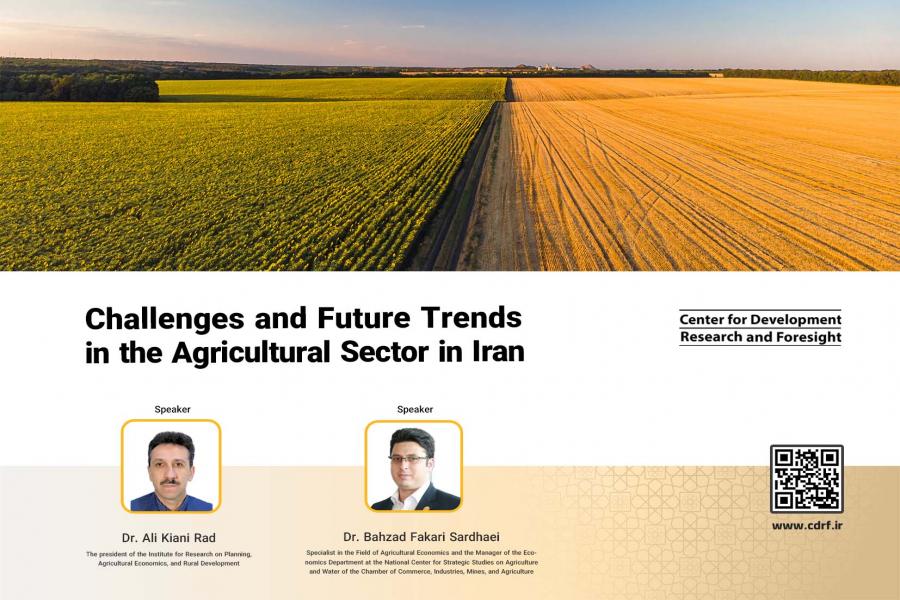
Challenges and Future Trends in the Agricultural Sector in Iran
Agriculture plays a critical role in Iran's economy, providing employment for over 15% of the workforce. While the sector holds immense potential for growth and development, it also faces significant challenges. Identifying these challenges and their impact on the agricultural system is essential for policymakers and stakeholders to formulate effective and targeted policies that address both current and potential issues, thereby enhancing the sector's resilience and enabling it to achieve sustainable development goals.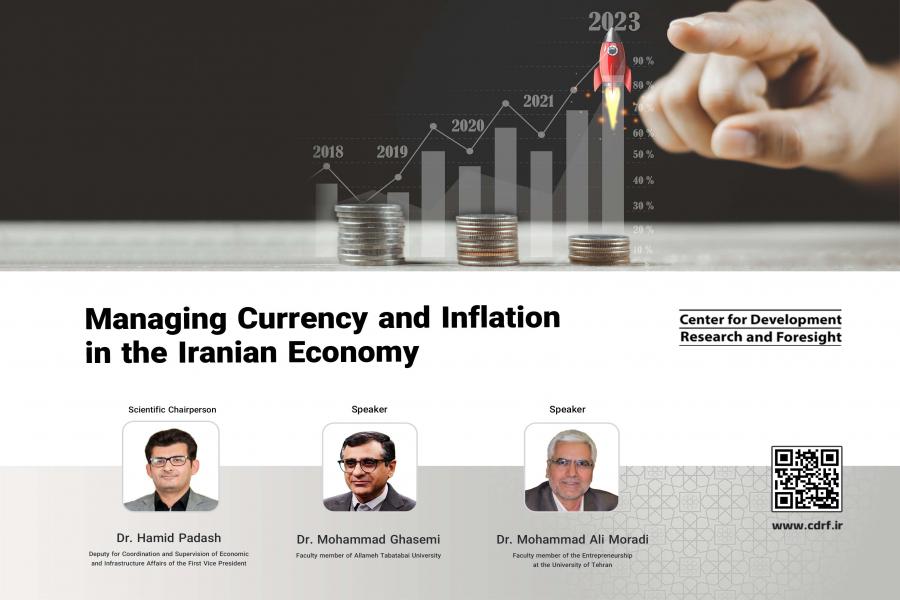
Exchange Rate and Inflation Policies in Iran's Economy
Inflation and exchange rate fluctuations have been persistent challenges in Iran's economy for several decades, leaving policymakers grappling with these issues. Double-digit inflation rates and currency shocks have become almost commonplace, characterizing the country's macro-economy for nearly half a century. However, in the past five years, these two issues have exacerbated Iran's economic situation, leading to unprecedented levels of inflation and exchange rates. Addressing inflation has become a priority in the country's policymaking, as reflected in the current year's slogan.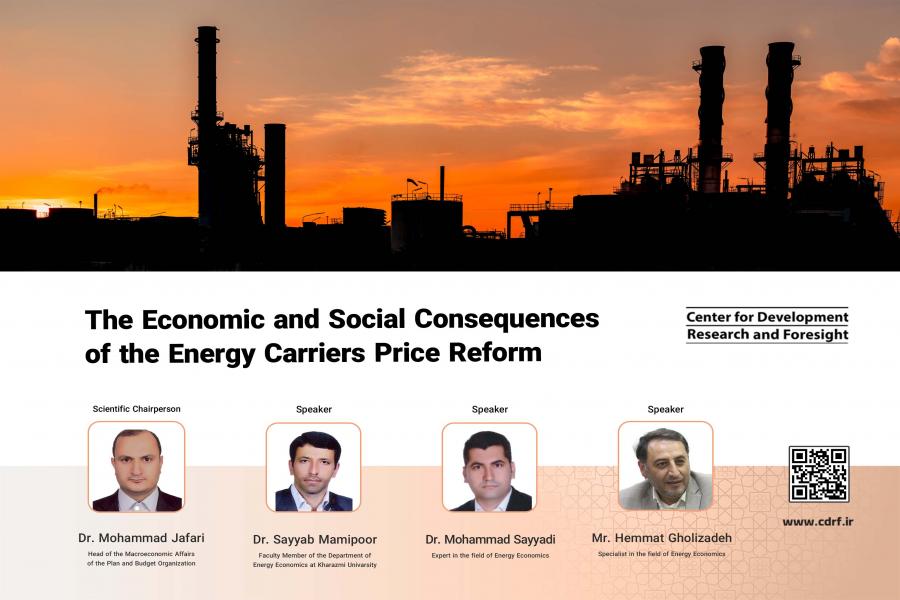
The Economic and Social Consequences of the Energy Carriers Price Reform
Given the significant role of energy in Iran’s economy, the pricing of energy carriers, particularly gasoline, has always been a critical factor in the implementation of government policies and the overall economy of Iran. The Energy Subsidy Reform policy and the appropriate pricing method have consistently posed challenges, with various governments grappling with economic, social, and environmental challenges in gasoline price reforms.
Maritime Development is a Key to Boast Economic Growth
The recent conference at the Center for Development Research and Foresight highlighted the growing importance of the maritime economy to the country's future. Experts and officials convened to discuss the potential of the seas and coasts to drive growth, create jobs, and address some of the country's long-term challenges.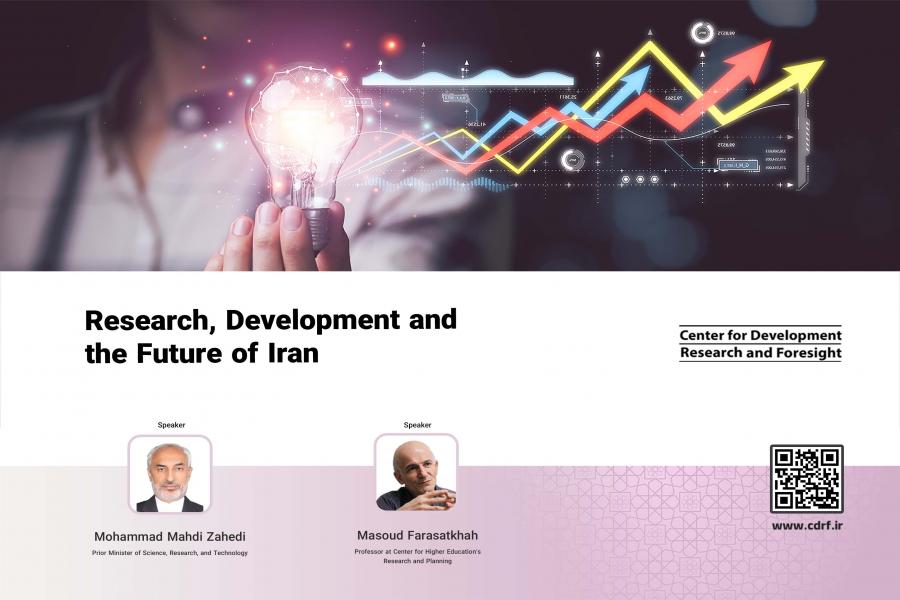
The future of Iran from the lens of Scholars
Iranian officials and experts are calling for a major shift towards "big science" as the key to unlocking the country's full potential and navigating the complexities of the 21st century. This comes amidst a heated debate on the role of science in Iran's development, with emphasis placed on moving beyond small-scale research towards large-scale initiatives the Center for Development Research and Foresight.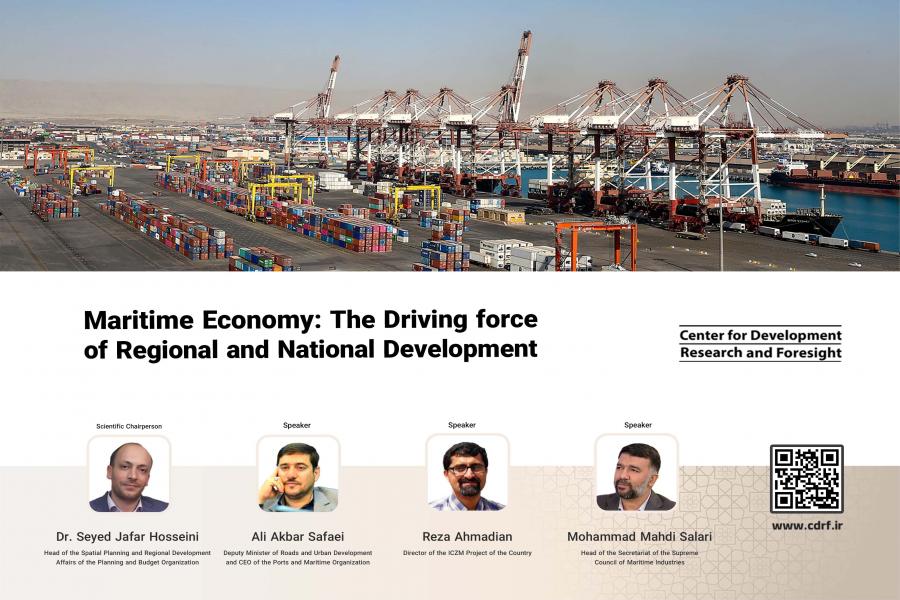
Maritime Development is a Key to Boast Economic Growth
The recent conference at the Center for Development Research and Foresight highlighted the growing importance of the maritime economy to the country's future. Experts and officials convened to discuss the potential of the seas and coasts to drive growth, create jobs, and address some of the country's long-term challenges.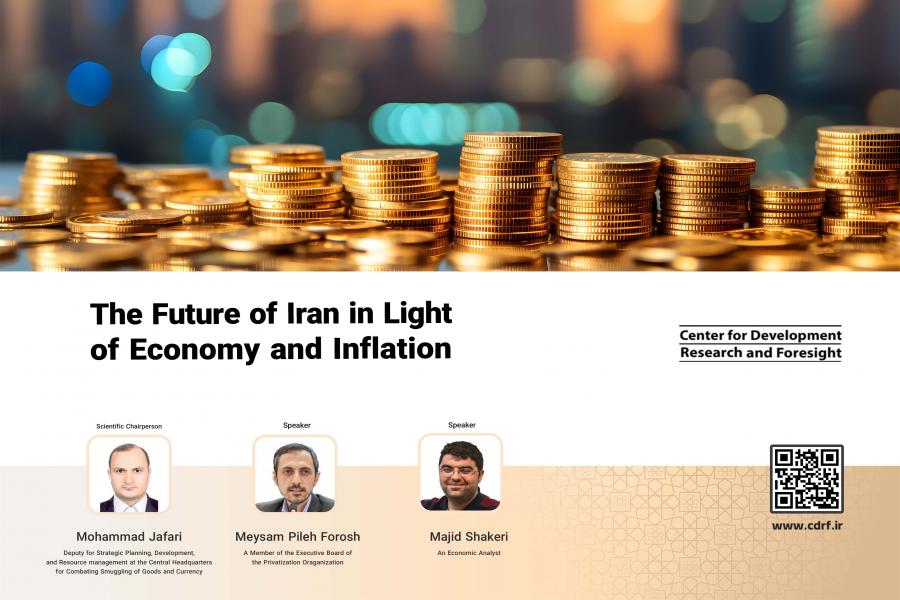
The Future of Iran: From an Economic Perspective
The Center for Development Research and Foresight hosted a pivotal conference titled “The Future of Iran: From an Economic Perspective” with the participation of leading economists and policymakers pointing out the persistent inflation, anemic growth, and deep-seated structural issues.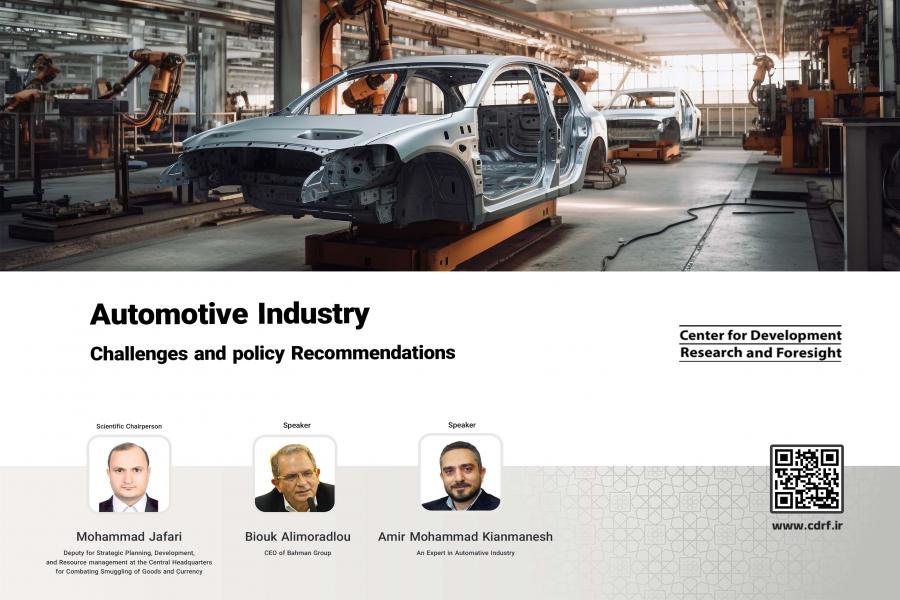
Automotive Industry: Challenges and Policy Recommendations
The recent conference at the Center for Development Research and Foresight, titled "Automotive Industry: Challenges and Policy Recommendations," was held with the participation of notable figures. These included Mohammad Jafari, Deputy for Strategic Planning, Development, and Resource Management of the Central Headquarters for Combating Smuggling of Goods and Currency; Biouk Alimoradlou, CEO of Bahman Group; and Amir Mohammad Kian Manesh, an expert in the automotive industry.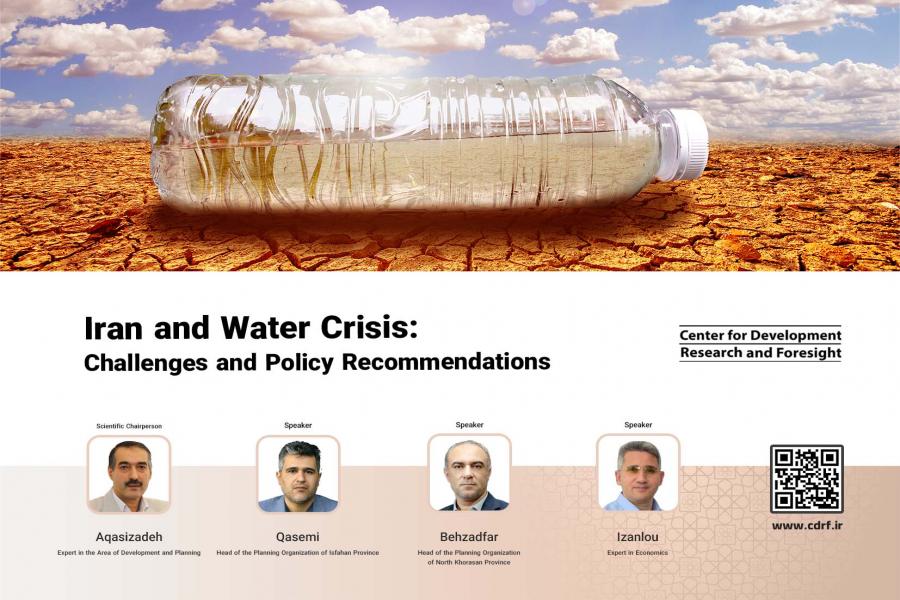
Iran's Water Crisis: A Looming Threat, Experts Warn
Iran's water crisis, long simmering beneath the surface, has reached a boiling point, according to experts who gathered at a conference titled “Iran's Water Crisis: A Looming Threat, Experts Warn” at the Center for Development Research and Foresight. The conference brought together leading figures in planning, development, economics, and water resource management to discuss the challenges and potential solutions to this pressing issue.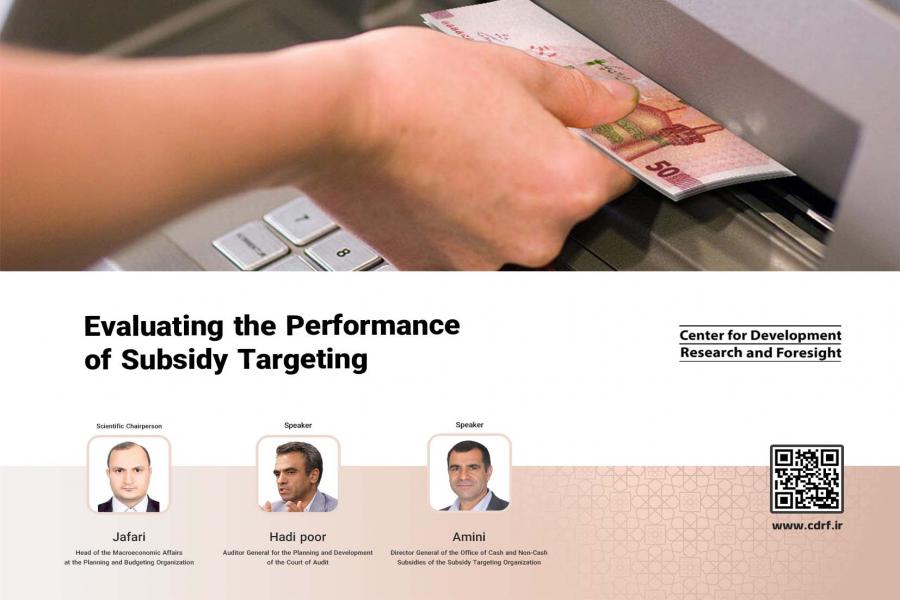
Evaluating the Performance of Subsidy Targeting
A heated debate unfolded at the conference titled “Evaluating the Performance of Subsidy Targeting” at the Center for Development Research and Foresight with key figures clashing over the effectiveness and future of the nation's complex support system.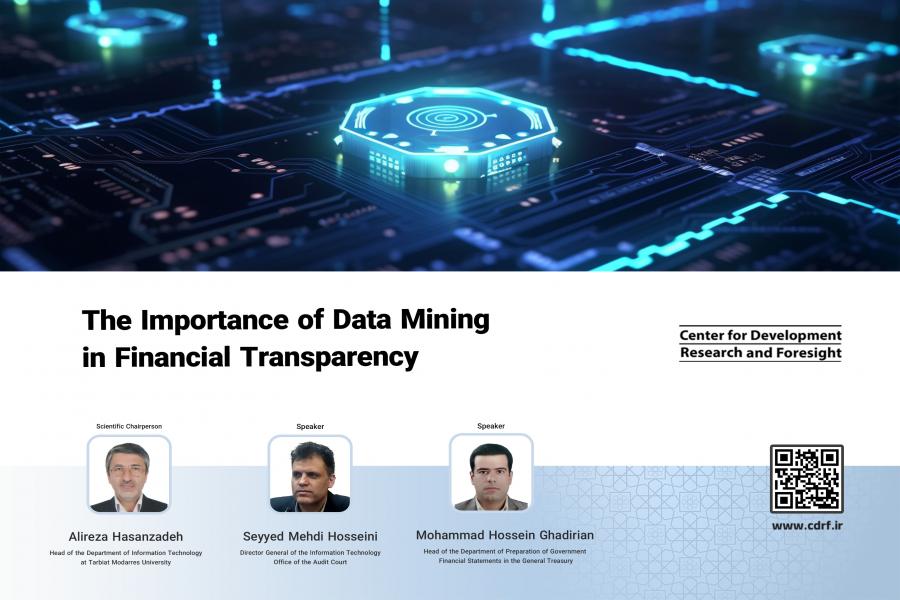
The Importance of Data Mining in Financial Transparency
The recent conference at the Center for Development Research and Foresight brought together experts to discuss how data governance and mining can improve the country's budgeting process. The conference was part of an ongoing series aimed at improving budget transparency and efficiency.
Parliamentary Intervention in Budgeting: A Scrutiny-Seeking Issue
The Conference titled “Parliamentary Intervention in Budgeting: A Scrutiny-Seeking Issue” with a concentration on improving the budgeting process in Iran, held at the Center for Development Research and Foresight, brought together experts to discuss the role of parliament in budget decision-making. The conference highlighted the ongoing debate about the extent to which parliament should be involved in the budgeting process, with some arguing for more oversight and others emphasizing the need for executive flexibility.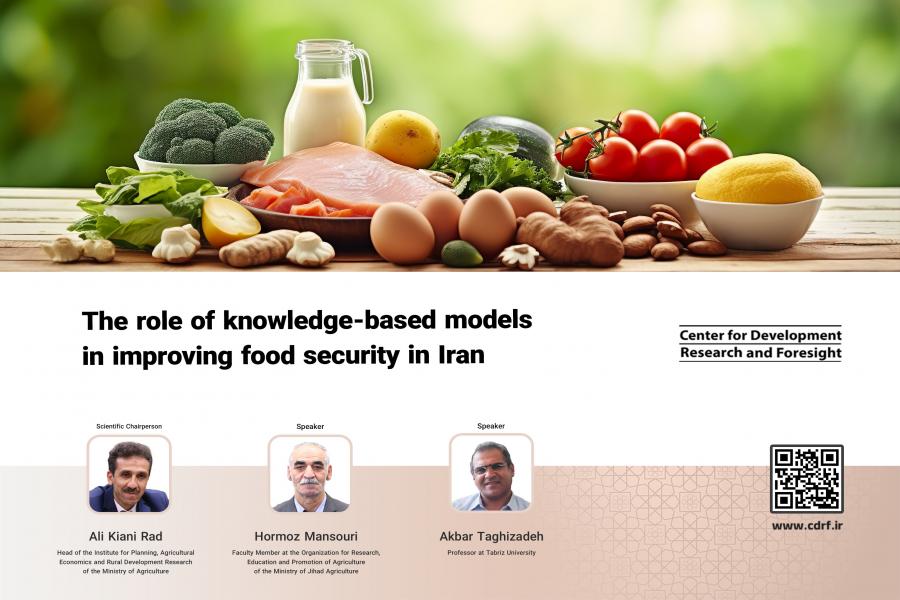
The Role of Knowledge-Based Models in Improving Food Security in Iran
The conference titled “The Role of Knowledge-Based Models in Improving Food Security in Iran” at the Center for Development Research and Foresight brought together experts to discuss the critical issue of food security in the country. The conference highlighted the challenges facing Iran's agricultural sector and explored potential solutions.
Shedding light on the Minimum Wage Policy in Iran
The recent conference titled “Shedding light on the Minimum Wage Policy in Iran” at the Center for Development Research and Foresight brought together economists and policymakers to discuss the country's wage policies. Hojjatollah Mirzaei, a faculty member at Allameh Tabataba'i University, criticized the recent wage hikes as inadequate and unevenly implemented. He argued that they failed to keep pace with inflation, leaving workers worse off, and called for the government to be more transparent about the basis for the increases. Mirzaei also expressed concern about the lack of consistency across different sectors, noting that some firms struggle to comply with the mandated increases. He emphasized the need for a more nuanced approach that considers the specific challenges of different industries.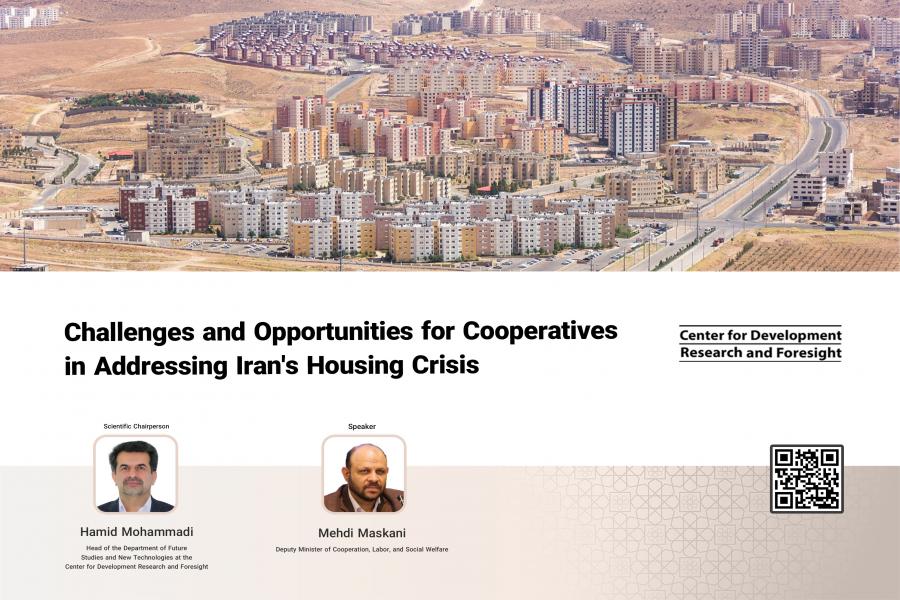
Challenges and Opportunities for Cooperatives in Addressing Iran's Housing Crisis
The recent conference of “Challenges and Opportunities for Cooperatives in Addressing Iran's Housing Crisis” at the Center for Development Research and Foresight brought together experts from various fields to address the critical issue of housing affordability in Iran. The conference highlighted the challenges faced by the Iranian housing market and explored potential solutions, particularly through the lens of cooperative housing models.
Unlocking Potential: Reforming Iran's Free Zones
The conference titled “Unlocking Potential: Reforming Iran's Free Zones” was held at the Center for Development Research and Foresight to discuss the performance of free zones in Iran. The conference was attended by stakeholders from the public and private sectors, including government officials, academics, and businesspeople.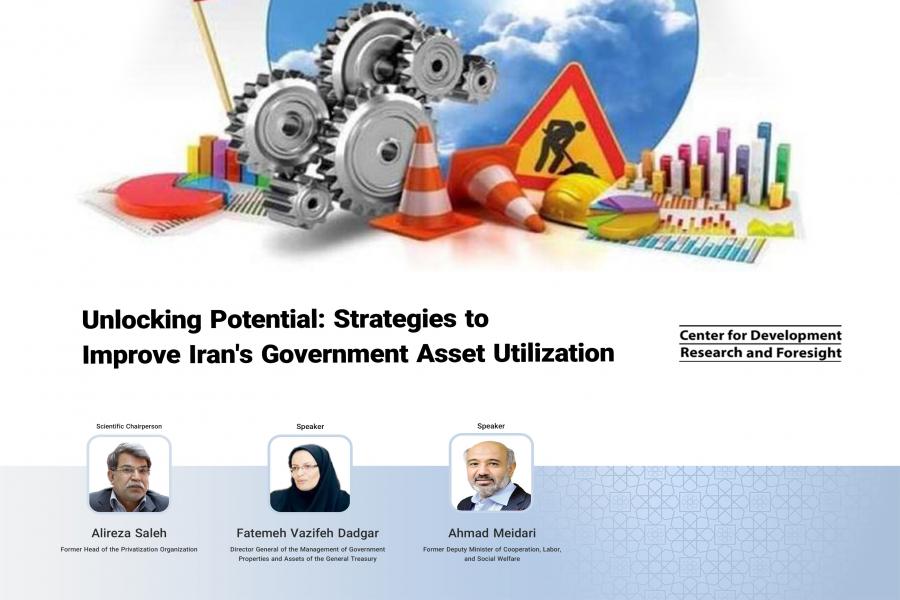
Unlocking Potential: Strategies to Improve Iran's Government Asset Utilization
In the conference titled “Unlocking Potential: Strategies to Improve Iran's Government Asset Utilization” at the Center for Development Research and Foresight aimed at addressing the challenges of managing government assets, Iranian officials discussed issues ranging from inefficient asset allocation to the need for legal reforms. The conference brought together experts from various sectors to explore strategies for maximizing the value of government-owned properties and resources.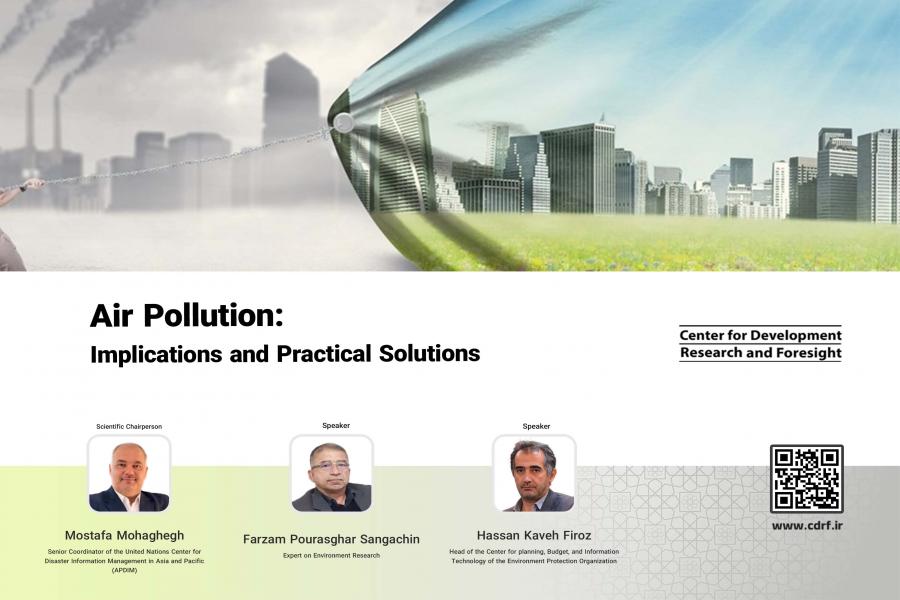
Air Pollution: Challenges and Operational Solutions
Air pollution is a major threat facing the world today, with millions of deaths attributed to it each year, according to experts who convened at the scientific-specialized conference titled "Air Pollution: Challenges and Operational Solutions" at the Center for Development Research and Foresight.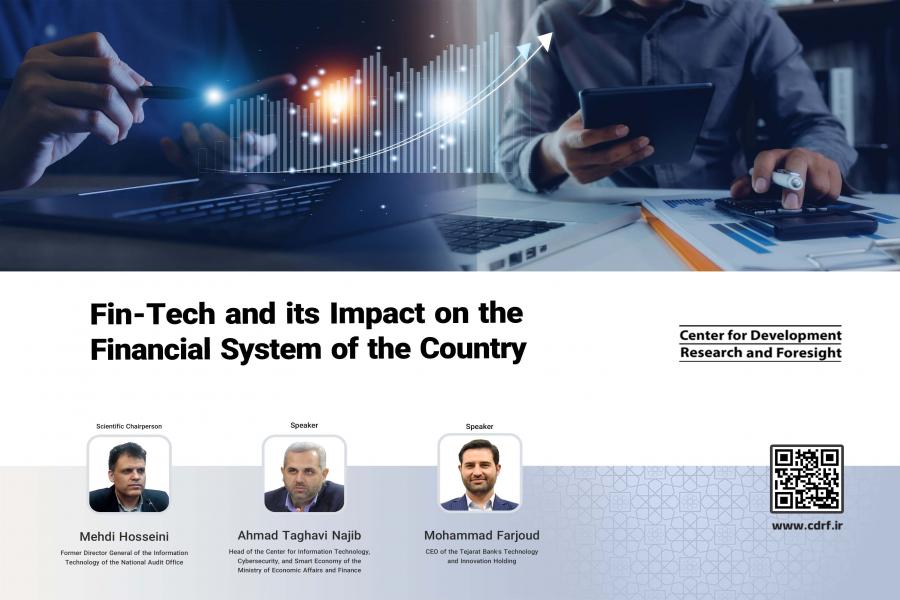
The Role of Financial Technologies in the Country’s Economic System: Challenges and Policy Recommendations
The scientific-specialized conference, titled "The Role of Financial Technologies in the Country's Economic System: Challenges and Policy Recommendations" at the Center for Development Research and Foresight brought together experts from various fields to discuss the potential and pitfalls of FinTech in Iran's developing economy.
Extraterrestrial Cultivation: Water and Food Security
In a move that could revolutionize its agricultural sector, Iran is setting its sights on extraterrestrial cultivation, aiming to tap into the water and soil resources of other countries to improve food security and expand its agricultural exports. This ambitious plan was discussed at the conference titled “Extraterrestrial Cultivation: Water and Food Security” at the Center for Development Research and Foresight.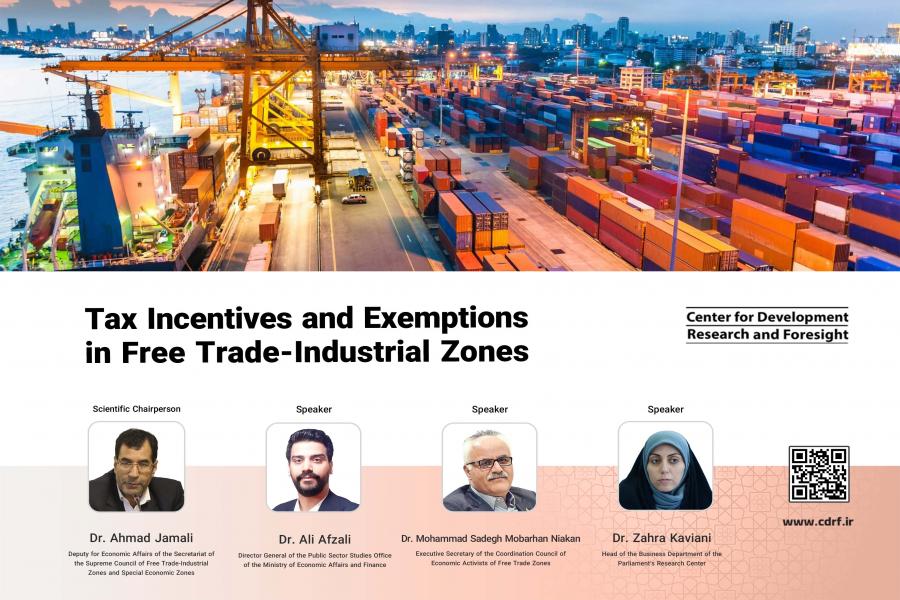
Incentives and Tax Exemptions in Free Trade and Industrial Zones
Concerns are mounting about the effectiveness of Iran's free trade zones, with their number ballooning from 8 to 18 and their impact falling short of expectations. This has sparked calls for reform, focusing on specialization, targeted incentives, and a renewed emphasis on exports.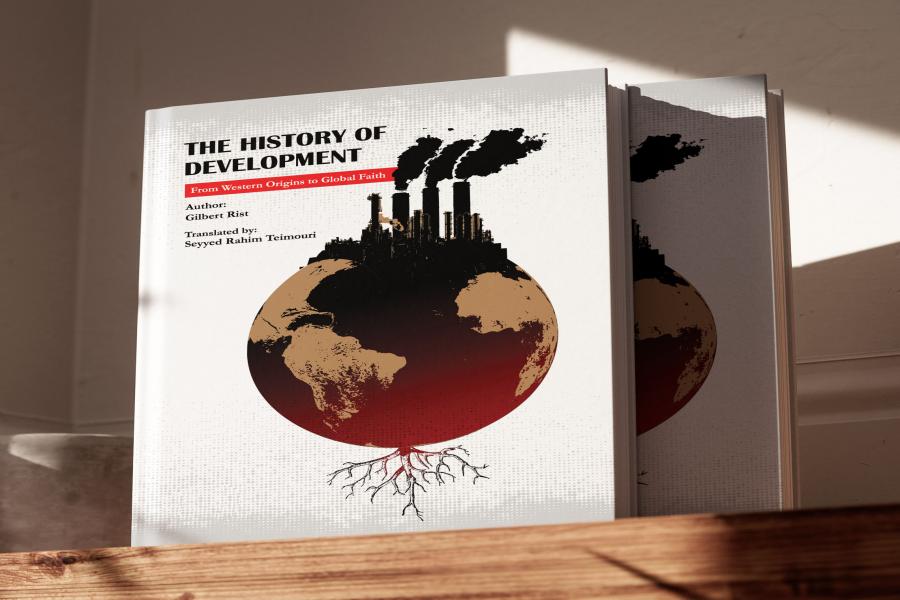
History of Development: From Western Origins to Global Faith
The Center for Development Research and Foresight has published the translated version of "History of Development: From Western Origins to Global Faith," originally authored by Gilbert Rist. Dr. Seyed Rahim Timouri is credited with the translation of this fifth edition.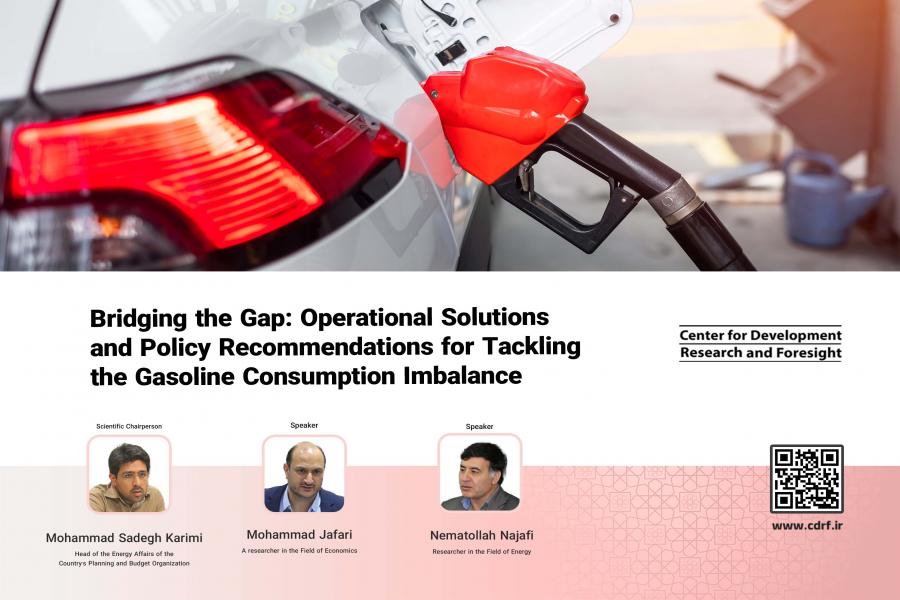
Bridging the Gap: Operational Solutions and Policy Recommendations for Tackling the Gasoline Consumption Imbalance
Iran is facing a growing problem at the pump. The country is burning through gasoline at an alarming rate, and experts are calling for action. In the recent conference titled “Bridging the Gap: Operational Solutions and Policy Recommendations for Tackling the Gasoline Consumption Imbalance” at the Center for Development Research and Foresight, key figures from government and academia discussed a range of solutions to bridge the gap between Iran's fuel consumption and supply.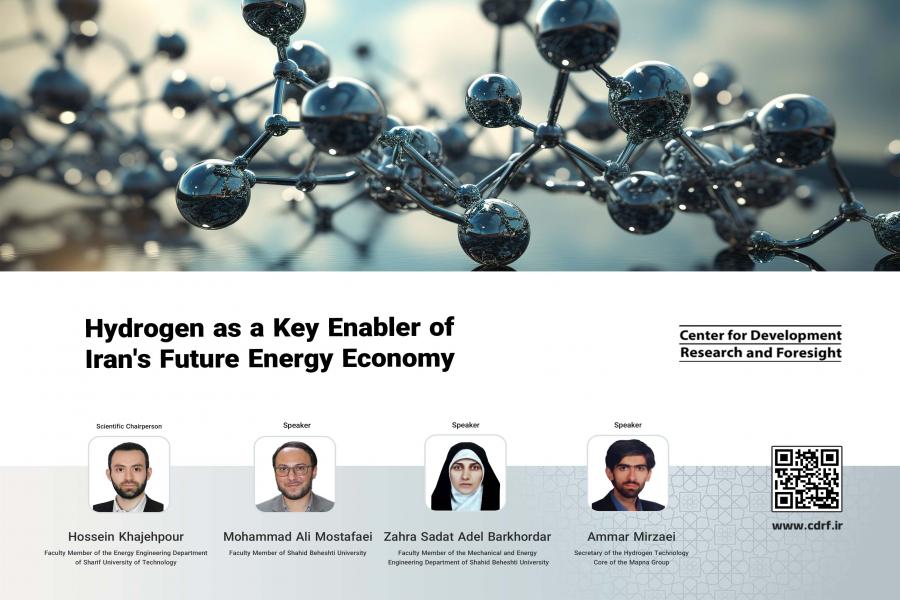
Hydrogen as a Key Enabler of Iran's Future Energy Economy
Could hydrogen be the key to unlocking Iran's clean energy future? That's the question experts tackled at the recent conference titled “Hydrogen as a Key Enabler of Iran's Future Energy Economy” hosted by the Center for Development Research and Foresight (CDRF).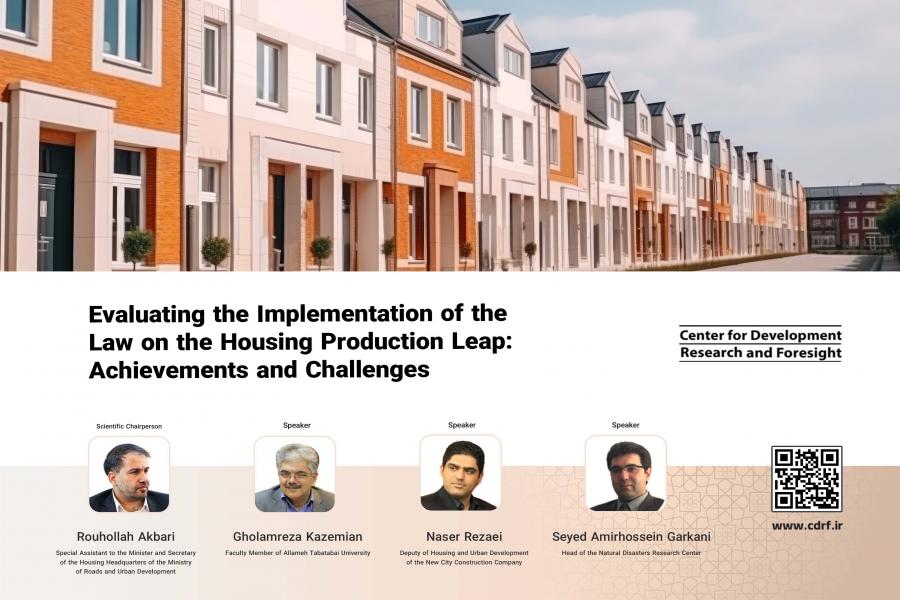
Evaluating the Implementation of the Law on the Housing Production Leap: Achievements and Challenges
In a recent conference titled "Evaluating the Implementation of the Law on the Housing Production Leap: Achievements and Challenges" hosted by the Center for Development Research and Foresight (CDRF) it has been an enlightening debate surrounding the effectiveness of the Law on Housing Production Leap.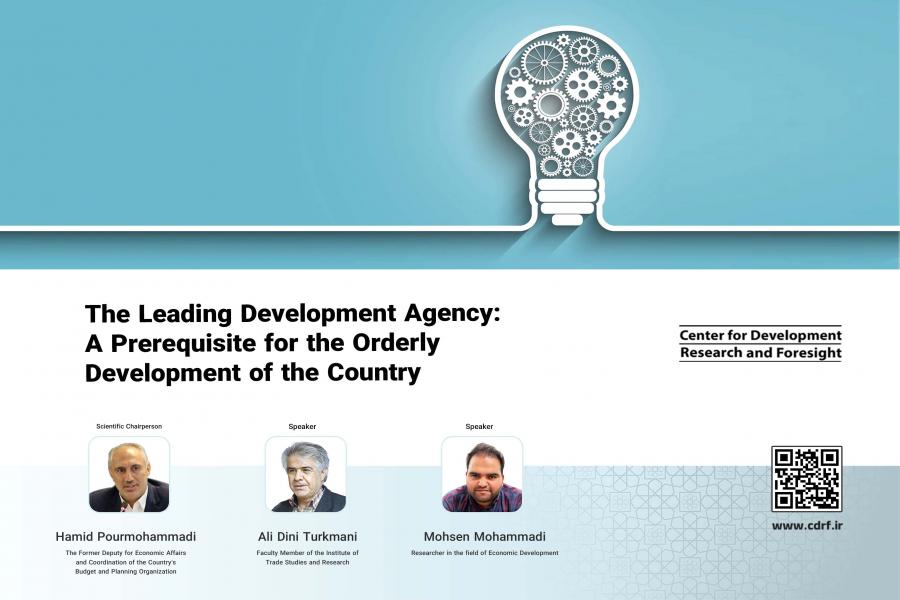
The Leading Development Agency: A Prerequisite for the Orderly Development of the Country
Iran might be looking to a new approach to development. The recent conference at the Center for Development Research and Foresight in tandem with the University of Tehran's Faculty of Governance titled "The Leading Development Agency: A Prerequisite for the Orderly Development of the Country" addressed the significance of a super agency with more power and a sharper focus than existing government bodies..jpg)
SMEs and Strategies to Overcome Barriers: The Role of Strategically-Aligned and Geographically-Proximate Countries
An international meeting held on April 24, 2024, at the Center for Development Research and Foresight, brought together experts to discuss the importance of small and medium-sized enterprises (SMEs) for economic growth and job creation, with a particular focus on the role of strategically-aligned and geographically-proximate countries. The meeting, titled "SMEs and Strategies to Overcome Barriers: The Role of Strategically-Aligned and Geographically-Proximate Countries," was led by Aidin Salamzadeh, the vice dean of the faculty of business management at the University of Tehran, who welcomed professor Galina Shirokova, the director of the Center for Strategic Entrepreneurship at HSE University of Saint Petersburg, Morteza Mohammadi Zanjireh, a faculty member at Imam Khomeini International University, and 17 university professors from St Petersburg University, Moscow State University, University of Calgary, and University of Notre Dame. 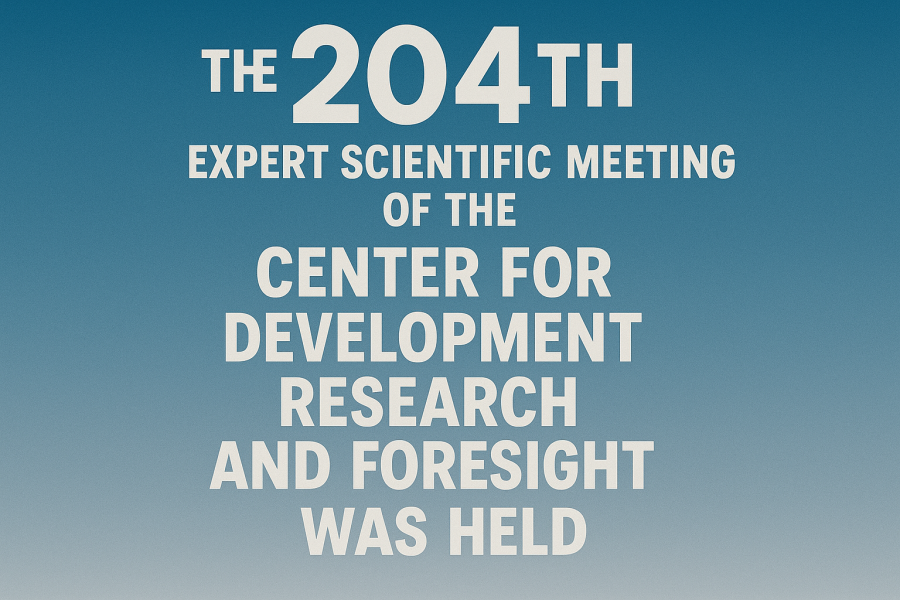
The 204th Expert Scientific Meeting of the Center for Development Research and Foresight (CDRF) was held.
According to the Public Relations Office of the CDRF, the 204th Expert Scientific Meeting of the CDRF was held on Tuesday, April 15, 2025, under the title 'The Government's Orientation in Fulfilling the 1404 Slogan (Investment for Production).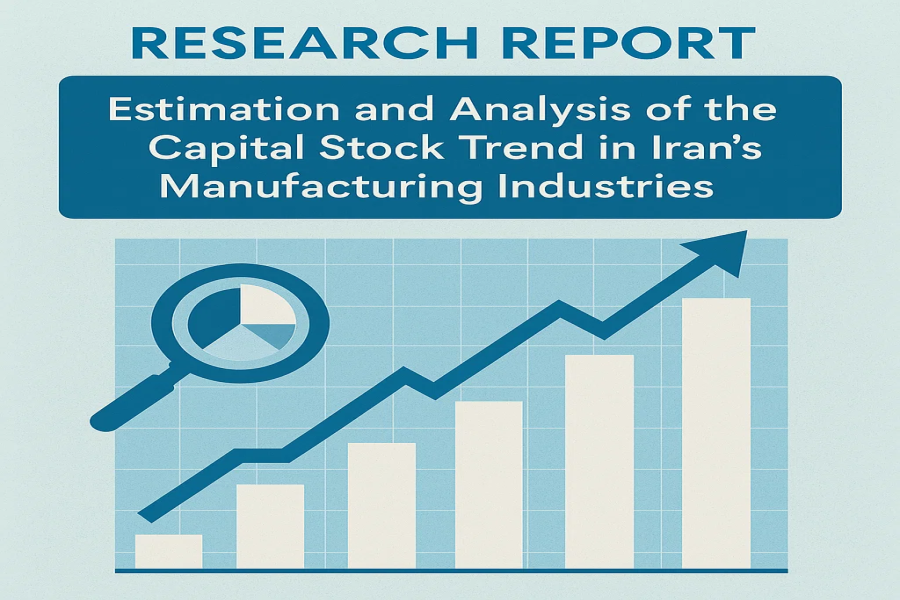
Research report on Estimation and Analysis of the Capital Stock Trend in Iran’s Manufacturing Industries
According to the Public Relations Office of the Center, the Research Group on Modern Systems of Planning, Budgeting, and Modeling at the Center for Development Studies and Foresight has published the research report titled: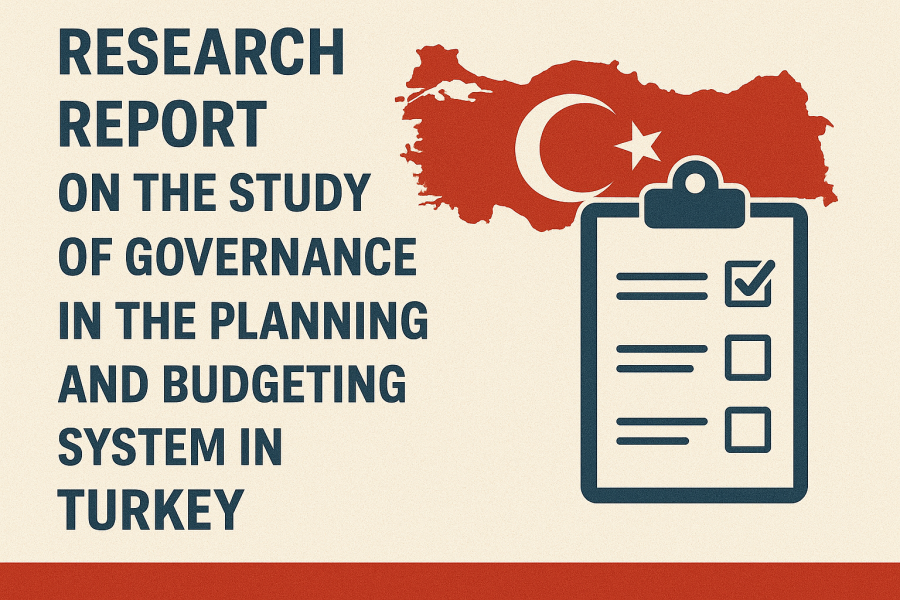
Research report on the Study of Governance in the Planning and Budgeting System in Turkey
According to the Public Relations of the Center for Development and Foresight Research, the Research Group on Modern Systems of Planning, Budgeting, and Modeling published a research report titled "Study of Governance in the Planning and Budgeting System in Turkey" in November 2024.
The 201st Expert Scientific Meeting of the Center for Development Research and Foresight (CDRF) was held.
According to the Public Relations Office of the CDRF, the eleventh session of the series entitled “The Future Outlook of Iran” and the 201st meeting of the CDRF was held under the title “A Critical Assessment of the Vision of the Islamic Republic of Iran in the Horizon of 1404 AH.”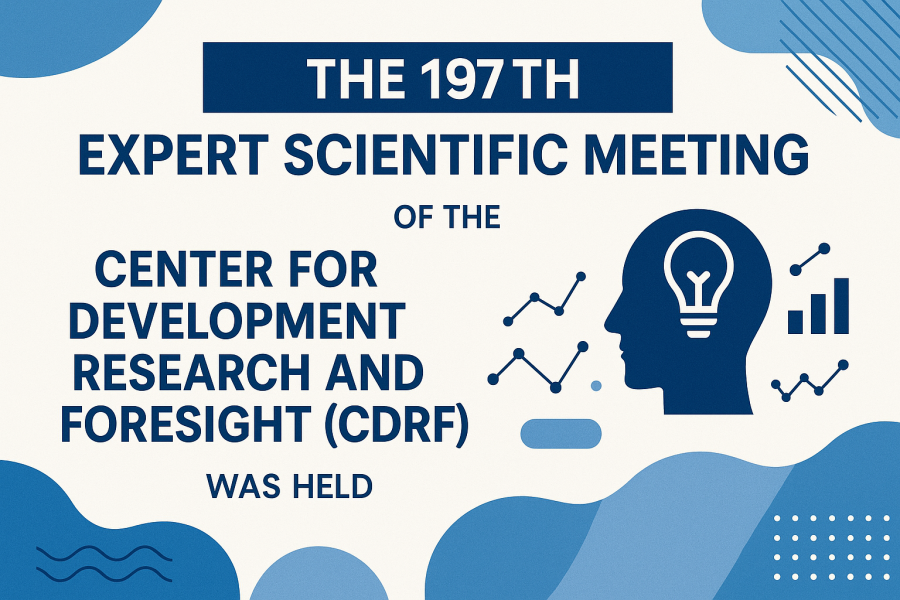
The 197th Expert Scientific Meeting of the Center for Development Research and Foresight (CDRF) was held.
According to the Public Relations Office of the CDRF, the seventh session in the series of meetings titled “The Future Vision of the Islamic Republic of Iran” and the 197th meeting of the CDRF was held under the title “The Role of Technology Development in Iran's Civil Vision.”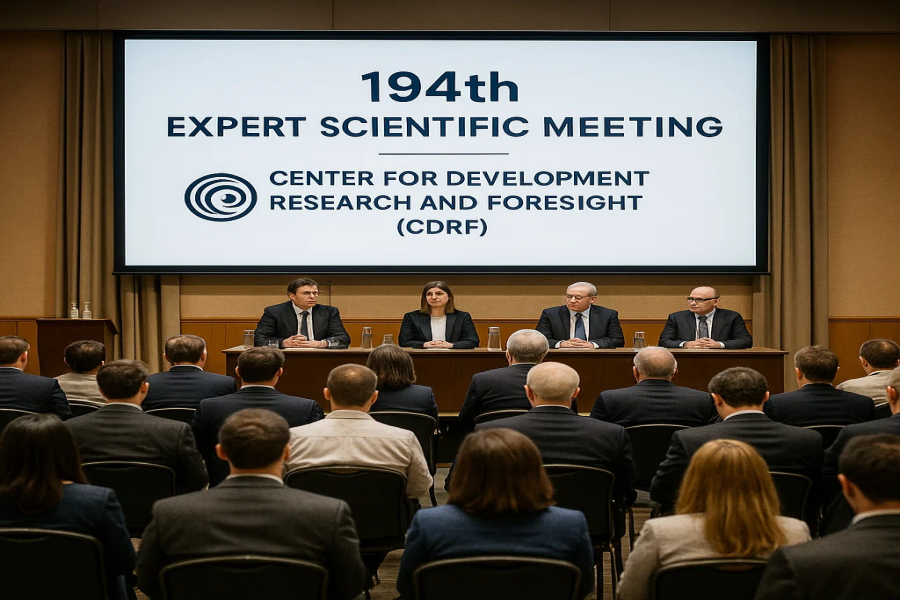
The 194th Expert Scientific Meeting of the Center for Development Research and Foresight (CDRF) was held.
According to the Public Relations Office of the CDRF, the fifth session of the “Future Vision of the Islamic Republic of Iran” series and the 194th expert scientific meeting of the CDRF was held under the title “The Vision of Demographic Changes and Urban Society.”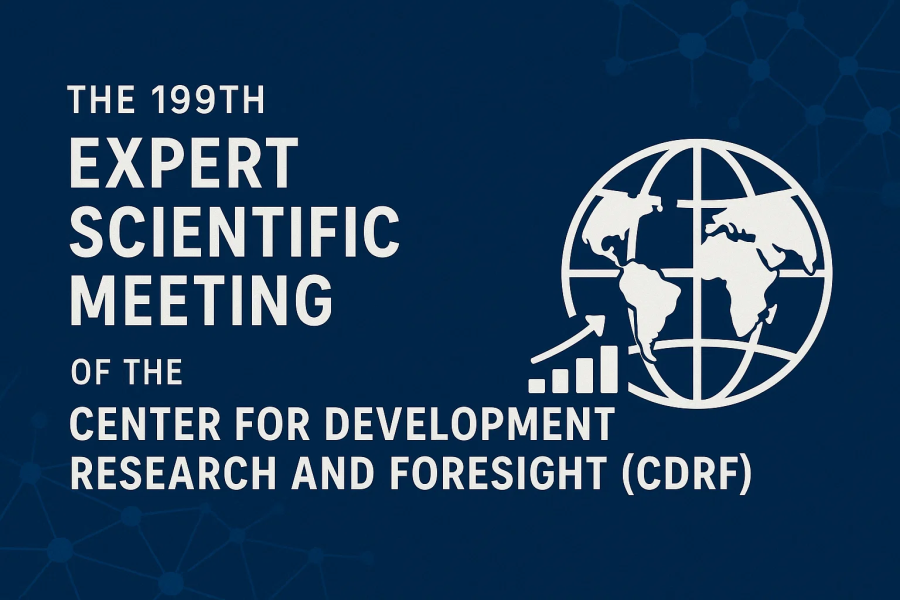
The 199th Expert Scientific Meeting of the Center for Development Research and Foresight (CDRF) was held.
According to the Public Relations Office of the CDRF, the ninth session of the series entitled “The Future Outlook of Iran” and the 199th expert scientific meeting of the CDRF was held under the title “Agriculture in the Vision of the Islamic Republic of Iran.”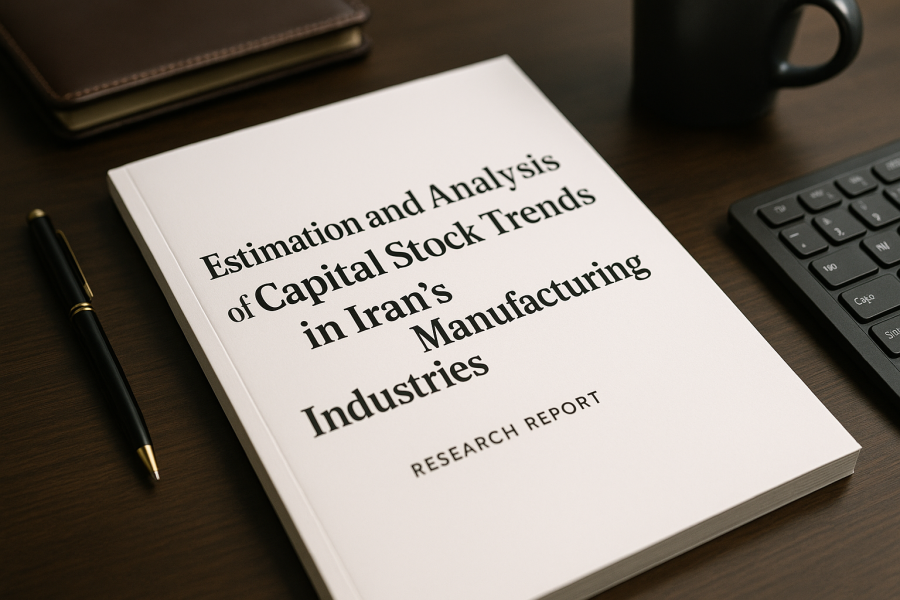
The research report titled “Estimation and Analysis of Capital Stock Trends in Iran’s Manufacturing Industries” was published.
According to the Public Relations Office of the Center for Development Research and Foresight (CDRF), the Research Group on Modern Planning, Budgeting, and Modeling Systems of the CDRF has published a research report entitled “Estimation and Analysis of Capital Stock Trends in Iran’s Manufacturing Industries.” A part of the introduction to this research report states:
امروز : سه شنبه، ۲۸ بهمن ۱۴۰۴

